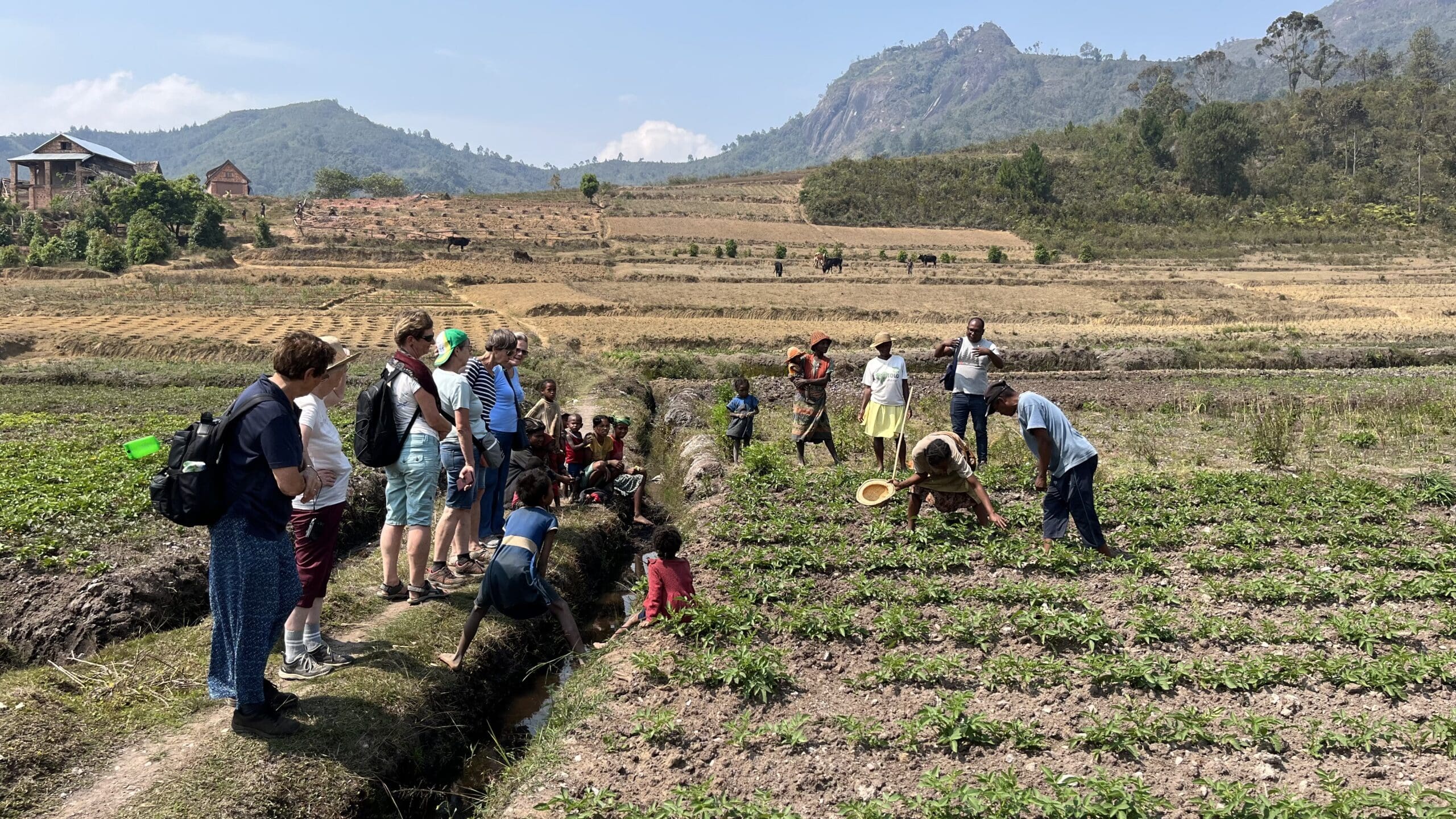Travelogue Madagascar 22 October - 13 November 2022
by Doris Ruckstuhl
In autumn 1998 I was in Madagascar for three months. Shortly afterwards I met Regula Ochsner and learned from her about her intention to counteract deforestation with solar cookers. After 24 years, I had the opportunity to travel to Madagascar again. This time under Regula's guidance. What an experience!
Regula and the travel agency Le Voyageur have put together a packed programme for our three-week trip, which includes visits to ADES and other environmental projects, hospitals and schools, as well as the opportunity to experience sights, country and life. We get an insight into the beauty of Madagascar, but also into the poverty and the many difficulties the country is facing.
Even the arrival is an event: with a veritable arsenal of suitcases we travel to Antananarivo (Tana for short), with a lot of material for hospitals or private individuals.
The first two weeks take us to the southwest. On the way from Tana to Tuléar, we visit various ADES workshops and get an insight into the production of solar cooking boxes, energy-saving cookers and parabolic solar cookers. There is a lively exchange over a meal with the entire staff. The excursion to a newly reforested area, a partner project of ADES and Vozama, is also impressive. We also visit a tea plantation, a vineyard and tree nurseries. Also noteworthy is the project of a Malagasy scientist and farmer who is successfully testing mixed cultivation and extracting essential oils. He also accompanies a potato project run by women. Potato cultivation is intended to counteract the large water demand of rice fields.
The schools are still like the pictures on old mission calendars: the simplest rooms with a blackboard and a crowd of children in mostly blue blouses, tightly packed into wooden benches. Mutual curiosity and openness always turn such school visits into happy encounters.
Between the villages lie mostly long lonely landscapes, which shine in unified beauty with their red earth, terraced rice fields and barren mountains. At the same time, the sight of the frequent bush fires hurts. On the way, we spend days in national parks, hike through forests, observe various lemurs such as the well-known kattas, varis, indris and sifakas, but also chameleons in different sizes and colours. The green geckos are also constant companions.
The towns and villages are bustling with activity. Life takes place on the streets and is colourful. People sell and transport here - on bicycles and pousse-pousses, on barely roadworthy cars, buses and trucks, or simply upside down.
From Tuléar we fly back to Tana and two days later north to Maroantsetra. Only the waterway leads to our hotel on the edge of the Masoala rainforest - this means a two-hour adventurous trip across the sea in two small boats. We spend three days at the Ecolodge. Our bungalows are very simple, in jungle romance. Electricity is available for three hours a day, WLAN not at all - and that without talking about "power shortage". All our hotels during the whole trip are well chosen, some are simply dreamlike.
After three days in Masoala we go back to Tana and with our chauffeurs three more days eastwards to Andasibe in the nature park. Here we see mainly indris. It is impressive how loudly these lemurs communicate over long distances. The sight of the railway station in Andasibe triggers a special memory for me - 24 years ago I spent a whole day here waiting in vain for the train!
It seems that Madagascar has hardly changed in 24 years. Poverty has not decreased, bush fires are still set to "gain land" or to protest. The roads are still a challenge for all vehicles. Fortunately, we have great careful drivers who also always give us information about the area, history and people. And also about distances: When we ask how much further we have to go, we get the answer that the Madagascans don't measure with kilometres, but with time. The journey still takes about one rice cooking time - which corresponds to about 40 minutes and is on average just enough for 20 km.
Madagascar impressed me once again: the upright, proud and cheerful people despite their poverty, the fascinating fauna and landscape... We laughed a lot and also discussed a lot, about our perception of Madagascar, about its development, about politics and corruption, about exploitation and environmental protection, about deforestation and erosion, about education, the future of the next generations...
Tourism may often be double-edged. But especially in the Masoala primeval forest we experienced that tourism not only offers income opportunities, but also protection. During the Corona period, more precious woods were illegally felled than in a long time.
It was a very impressive trip. On behalf of the whole group, I would like to express my sincere thanks to Regula for making these diverse impressions possible.
The images, the feelings, the scents... are deeply etched, the concern and love for Madagascar are strengthened anew, the attachment to the country remains.
Impressed by the travel report? Regula Ochsner is planning a new trip from October to November 2024. For more information and pre-registration, please contact [regula.ochsner@bluewin.ch].


